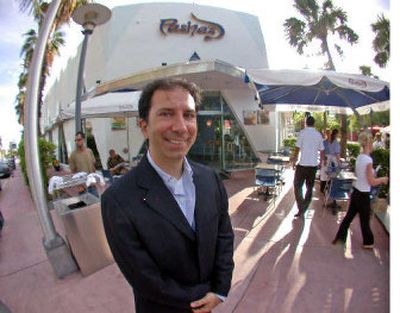Cuba’s door still bolted

NEW YORK — If Fidel Castro died tomorrow, the U.S. embargo against Cuba could not be lifted like any other — as President Bush undid by decree the 18-year trade sanctions against Libya in April or President Clinton lifted the 19-year ban against Vietnam in 1994.
The door to trade with Cuba is bolted by numerous laws which, over the 46 years since the initial ban took effect, stripped much of the power of trade policy from the president and gave it to Congress.
U.S. companies are looking at Cuba’s potential but few will discuss it openly, citing the current status of the embargo. But for U.S. businesses eyeing the Cuban market — should the political situation on the island change — moving beyond the embargo will take nothing short of an act of Congress, according to John Kavulich, a senior policy adviser with the U.S.-Cuba Trade and Economic Council.
“No matter what happens in Cuba, a provision of the Libertad Act of 1996 precludes the U.S. president from establishing normal economic and political relations with Cuba, as long as the government includes one of the Castro brothers,” said Kavulich, whose New York-based group provides nonpartisan commercial and economic information about Cuba.
Castro, who turns 80 on Sunday, is said to be recovering from surgery that led him to temporarily cede power last month to his younger brother, Defense Minister Raul Castro. Neither of the brothers has made a public appearance since.
“Bush can’t do the two biggies: He can’t quote-unquote ‘normalize’ commercial, economic and political relations with Cuba — the Libertad Act says that decision belongs to the U.S. Congress,” Kavulich said. “And secondly, he cannot unilaterally allow expanded travel to Cuba — that also is in the hands of the U.S. Congress.”
The U.S. Treasury Department maintains that “legally, the president has significant flexibility to amend the embargo; however parts of that embargo are in place pursuant to legislation and would require congressional action,” according to a spokeswoman.
Despite the political hurdles, U.S. companies have Cuba in their sights. Castro’s hospitalization reminded U.S. companies that Cuba’s status quo may be closer to change than it has seemed in decades.
“If you have a strategic plan for potential investment into Cuba, you should pull your plan off the bookshelf, dust it off and bring it up to date. We don’t know how quickly opportunities in Cuba will develop,” said Teo A. Babun, Jr. a Miami-based consultant to companies looking to expand into a post-embargo Cuba.
The roster of clients posted on his Babun Consulting Group Web site includes an international unit of packaged foods giant ConAgra Foods Inc., Radisson Seven Seas Cruise Line, computer maker Hewlett-Packard Co. and the Port of Delaware.
Babun said two types of companies would want to move quickly: Those looking for opportunities as government-owned companies privatize, such as infrastructure companies, and those that need access to materials or products for export, such as mining companies looking for access to Cuba’s large deposits of nickel, which is used in stainless steel production.
The first companies to move in would likely be those that could rebuild that country’s infrastructure, said Frank Nero, who heads the Miami-based Beacon Council, an economic development organization.